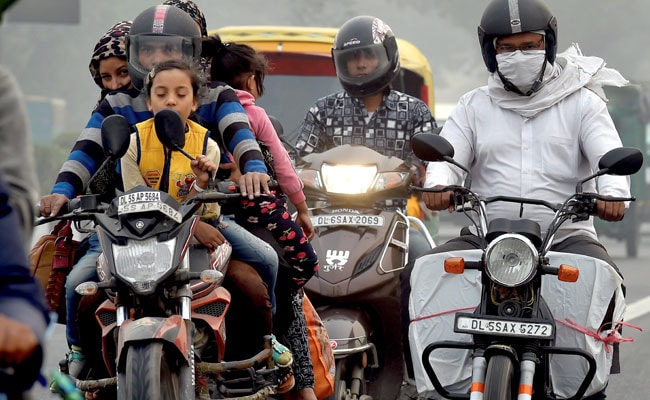
The government's move to start supplying cleaner auto fuels for Delhi by next April could help cut "some emissions" from existing vehicles. The petroleum ministry today said oil companies had agreed to stop supplying Bharat Stage-IV grade auto fuel to the national capital within the next six months, and switch to the cleaner BS-VI grade fuel to help improve what it called "the serious pollution levels" in Delhi and neighbouring areas, a reference to the deadly cocktail of toxins, smoke and fog that has been hanging over the city for days.
A huge difference in the two standards of auto fuel - the existing BS-IV and the new BS-VI norms - is the presence of Sulphur. The new fuel will bring about a massive 80 per cent reduction of Sulphur, from 50 parts per million to 10.
Low sulphur fuels let auto manufacturers use technology that can vastly reduce emission rates of pollutants such as particulate matter (PM) and nitrogen oxides (NOx).
Inspired by the European regulations, the Bharat norms are emission control standards to control air pollution and lay standards for vehicles and fuel. India had originally proposed to implement the BS-V norms from 2019.
Last year, India decided to migrate to the Bharat-VI level from April 2020, leapfrogging over BS-V norms. Wednesday's announcement advances the deadline for auto fuel by two years for Delhi.
For the neighbouring districts that make up the national capital region, petroleum minister Dharmendra Pradhan said oil companies will try to supply the cleaner fuel by 2019.
The full advantage of today's move will be possible only when vehicle technology moves to BS-VI, said the Centre for Science and Environment, or CSE, the Delhi-based policy think-tank that wants auto majors to fast forward introduction of new technology too.
The matching BS-VI motor vehicles are only going to be introduced from 2020.
But in a choking city like Delhi, the substantially cleaner fuel emissions will give "some emission benefits", said Anumita Roychowdhury of CSE. But the extent of this benefit is unclear.
Once the auto industry upgrades its technology, it is expected that emission of particulate matter from vehicles would be slashed by 80-90 per cent for cars and two-wheelers and 50 per cent from trucks and buses. Nitrogen oxide emissions are expected to drop by about 70-80 per cent.
The pollution crisis is a combination of vehicular exhaust, dust from construction sites, and stubble-burning in the agrarian states of Punjab and Haryana which border Delhi.

